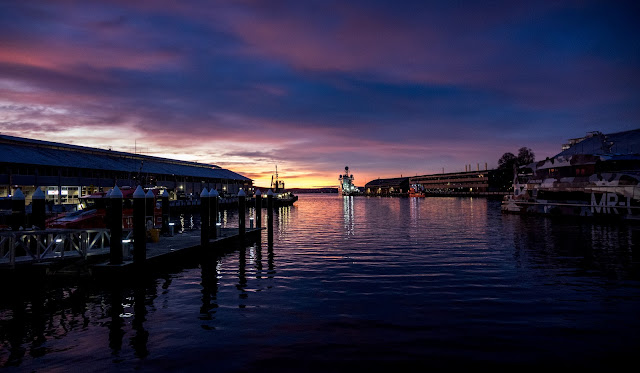“As you got older and time went on, you realized that the distinction between truth and fiction didn’t really matter because eventually everything disappeared into the soupy, amnesiac mess of history. Personal or political, it made no difference.”
 |
| Good morning. Federation Dock, Hobart. August 2021. |
A God in Ruins by Kate AtkinsonA "companion piece" rather than a sequel to one of my favourite books that I've read this year (Life After Life. Much like the first book, this one is also experimental in form. Timelines skip backwards and forwards but (largely) avoid the 'parallel realities' that marked the earlier work.
The experimentation did not disrupt the experience, and I found that it again afforded Atkinson the power to explore the concept of memory, fiction and imagination. If I didn't quite enjoy it as much as its predecessor, it was due to the presence of the distasteful Viola. Without a doubt, her character is an essential exploration of the intergenerational shift, but I did find her irritating to the point of distraction.
There is a fine art to the wilful disruption of chronology that goes some way to explaining Viola's attitude. The resolution of the piece - like Life After Life - is at once original and devastating. This is indeed a novel that reminds one of the exciting potentials of the form. It is both exhilarating and heartbreaking at once.
Atkinson's writing never feels fake or masturbatory. Indeed, she has presented here another deft and inspiring achievement by a novelist who seems fearless in her confidence in setting about to new and imposing challenges. I am always sceptical about the mythology of the literary canon, but my word, if there is such a thing, one should reserve a seat for Kate Atkinson.
⭐ ⭐ ⭐ ⭐ ⭐
Comments